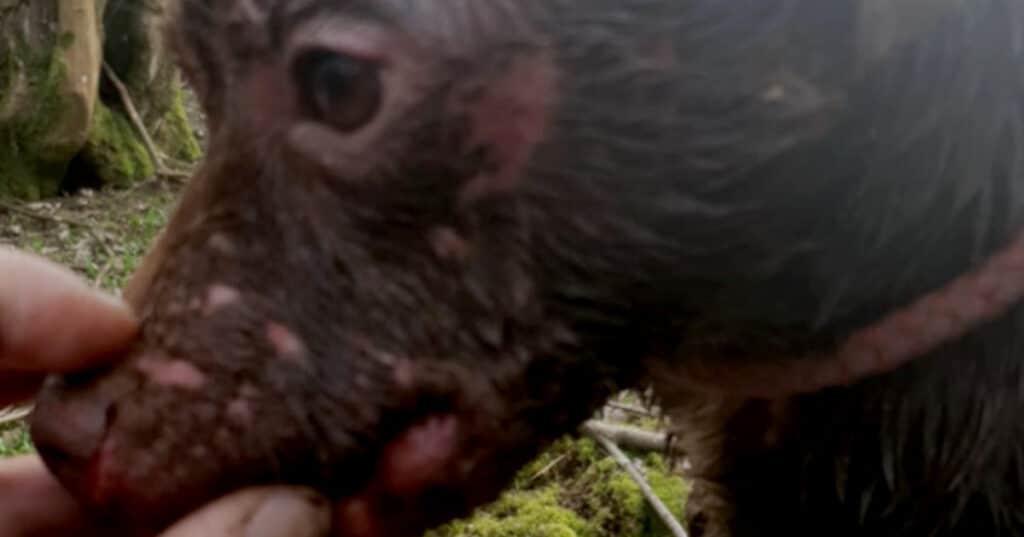Repeat animal abuser, Joseph Whittam, has been jailed for a second time after his address was raided. Whittam was banned from keeping animals for life in 2018 after gruesome footage was found on his phone, where he encouraged his dogs to rip a cat to pieces.
The video was described as “blood curdling” by the RSPCA. Other videos, found on his phone at the same time, showed the dogs attacking a fox and a gerbil. At the time, Whittam was sentenced to 22 weeks in prison.
In April 2021, Whittam’s home was raided during a joint investigation by Lancashire Police and the RSPCA. Whittam was suspected of keeping animals, in breach of the disqualification order. LancsLive reported:
“When officers visited the property, they discovered three dogs and four ferrets…
A woman at the address claimed to own three dogs who were found at the home while Whittam admitted owning the ferrets. He was told to rehome them immediately.
After gathering evidence, Whittam was summoned with offences relating to breaching his ban in connection with the ferrets and for keeping a dog.”
The dog, known as Thugly, had suffered injuries to his face after an encounter with a wild animal, and Whittam had failed to provide veterinary treatment to him. On 20 January 2023, Whittam was sentenced for four offences under the Animal Welfare Act after he pleaded guilty on the first day of his trial. He was imprisoned for 23 weeks for two offences of causing unnecessary suffering to the terrier in his care, and for two breaches of his disqualification order.
How did Thugly receive his latest injuries?
It’s unclear how Thugly the terrier received the injuries to his face. Reports state that Thugly had “an encounter” with another animal. It’s very likely that Thugly was set upon an animal in order to fight him or her. Of course, we won’t ever know if the animal survived the ordeal.
Protect The Wild has previously reported on how terriers like Thugly are used in the cruel bloodsport of badger baiting. Dogs are sent into badger setts to hold an animal at bay. Humans then dig the badger out of the sett, and the dogs tear the poor creature apart. More than 10,000 badgers are killed by baiting every year in this country, and dogs often suffer severe injuries when forced to fight. Just like Whittam, badger baiters often don’t get their dogs’ injuries treated, for fear of being reported to the police by the vet.
Repeat offending
Whittam’s first 22-week imprisonment, back in 2018, clearly didn’t deter him at all. His latest sentence is also unlikely to do so. People who force their terriers to fight other animals are often never caught, and if they are arrested and found guilty – whether under the Animal Welfare Act or the Protection of Badgers Act – their sentences in prison are usually just weeks. Take the four men who were convicted in 2019 of badger baiting after an undercover BBC reporter filmed them torturing badgers, for example. Despite all the footage, as well as the public exposure, three of the men received sentences of between 22 and 26 weeks, while one escaped prison.
These low sentences for murdering a sentient being are laughable if we compare them to other crimes. And they’re even more laughable if we take in the fact that people like Whittam will certainly get out of prison in half the length of the sentence, or even less.
Sentencing Council guidelines read:
“For sentences of less than two years the offender will be released at the halfway point of the sentence and will then be on licence for the remainder of the sentence and may be recalled to prison if they breach the conditions of their licence.”
People imprisoned under animal welfare offences can be released even quicker than this on a home detention curfew (HDC), where they’re electronically tagged and a curfew is imposed. The charity Pact explains that:
“HDC lasts a minimum of 14 days and a maximum of 3 months for those serving less than 12 months, and a maximum of 4 and a half months for those serving 12 months to 4 years. Those serving between 3 and 4 months become eligible for HDC after 1 month in custody. Those serving 4 to 8 months become eligible after serving a quarter of their sentence and those serving more than 8 months and less than 4 years become eligible 4 and a half months before their automatic or conditional release date. Time spent on remand counts towards eligibility.”
So under these rules, someone serving six months in prison, such as the badger baiters mentioned earlier in the article, could potentially be released on tag after 1.5 months. It’s unclear as to whether Whittam would be granted release in such a short time because his previous conviction will be taken into account.
Contact your local hunt monitors and saboteurs
Protect The Wild and other organisations, such as the Badger Trust, are calling for stiffer punishments for those convicted under the Protection of Badgers Act. Meanwhile, if you are out in nature and see people acting suspiciously with terriers, especially around badger setts, contact your local hunt saboteur, wildlife defence or animal welfare group.
Featured image of Thugly via RSPCA

